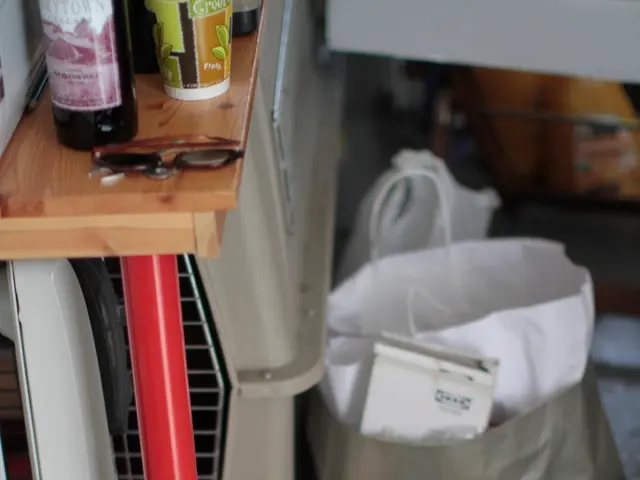Day of solidarity and funds of two billion assigned: Minister Antoine Armand reiterates his stance against it.
Get the Scoop on France's Potential Second Day of Solidarity for Elderly Care
📸 Credit: Luis Alvarez/Getty
Bring a Second Helping of Work? The idea of a second day of solidarity to bolster France's elderly and disabled care has been tossed around, as it's been helpingboost care funding for 20 years. Set to take place on Whit Monday, let's dig into its workings and potential addition.
The proposal originated in a senatorial report, as reported by BFMTV. The new day is envisioned as a means to finance EHPADs, accommodating over 600,000 people.
With the opening of the Social Security Finance Bill (PLFSS) on October 28, the Minister of Economy, Antoine Armand, spoke about the concept on LCI, terming it an "intriguing idea." He acknowledges France's work hours tend to be less than other countries, stating it's a fact that holds true throughout a person's life. He emphasized the government's goal to strengthen the country by promoting growth and emphasizing the need for more work.
Whit Monday: Who Takes the Tab? If a second day of solidarity is green-lit, it could generate €2.4 billion in additional revenue, potentially leading to the abolition of a public holiday, according to the senatorial report. At the same time, Antoine Armand stressed the importance of continuing reforms in pensions and unemployment insurance, as they facilitate increased workforce participation. Each day, he added, "we'll have to work more and spend less." It's worth noting that since 2008, the day of solidarity has been only optional for companies.
EHPADs, Public Holidays, and the Elderly
- EHPADs: Affordable care for the elderly in France is a hot topic. The average monthly cost for EHPAD residents is around €2,004, with aid available based on income for some relief[1]. facing financial obstacles, as seen with major providers like Clariane (formerly Korian), dealing with refinancing and seeking money from investors to maintain operations[5].
- Removing a Public Holiday? A public holiday abolition is a contentious issue. It'd depend on public acceptance and the fair distribution of the financial burden.
- Implications: Implementing a second day of solidarity could impact consumer spending and businesses due to increased workforce participation. Any social measure, however, aims to improve elderly care and create a more sustainable social system.
- Retirement savings could benefit from additional finance generated by the potential second day of solidarity, as it could potentially boost the country's economy and provide more resources for health-and-wellness initiatives, including affordable elderly care.
- In the realm of business and finance, the proposed second day of solidarity could pose challenges for companies, as they might need to adjust to increased workforce participation. However, this could also present opportunities for businesses focused on science and health-and-wellness to offer innovative solutions to accommodate the needs of the growing elderly population.








